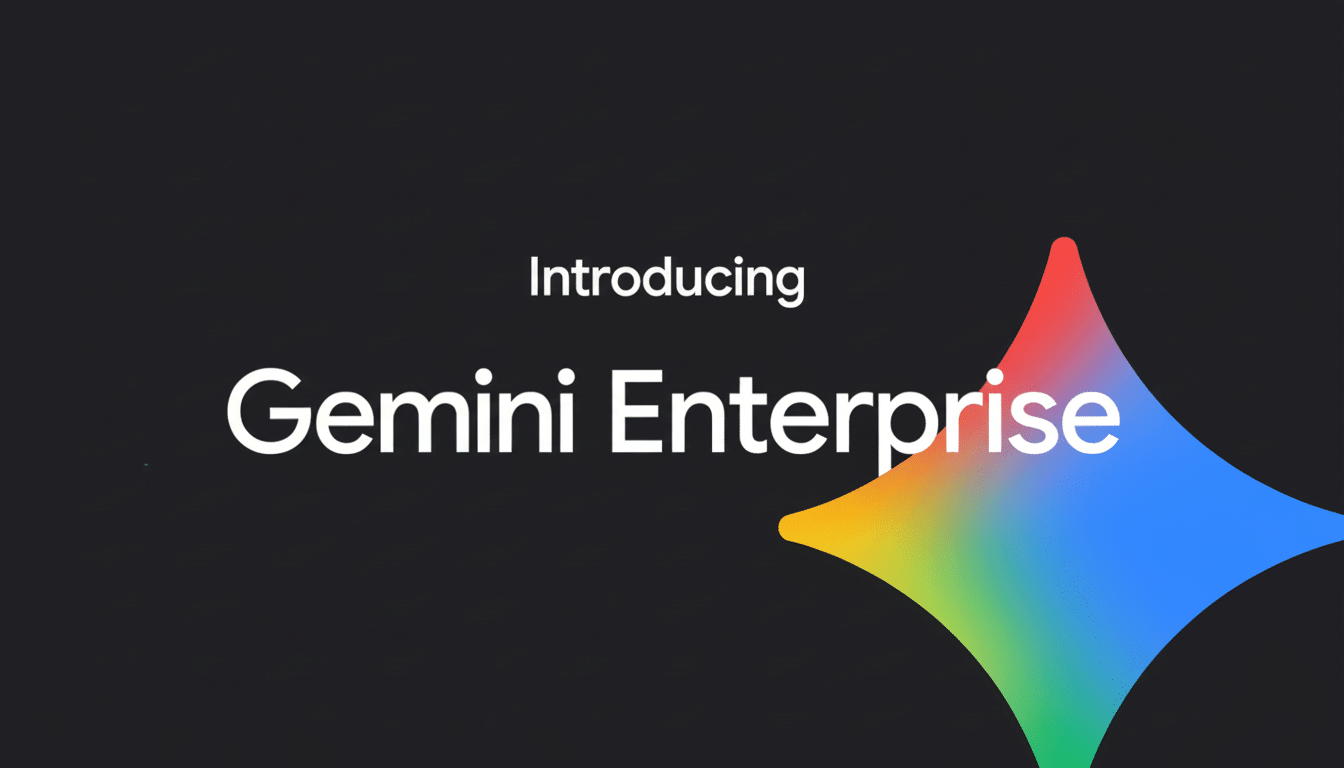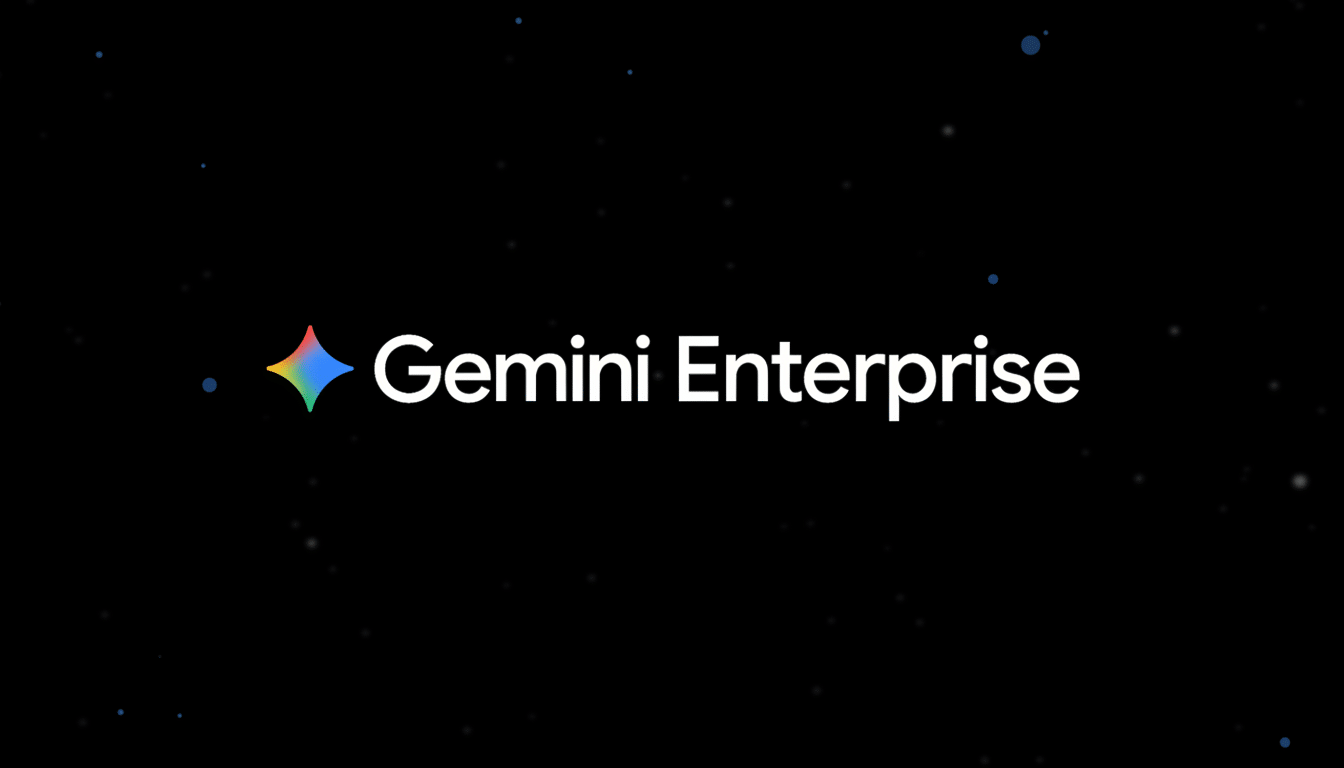Google is doubling down on enterprise AI with Gemini Enterprise, a new Google Cloud platform designed to situate AI agents at the heart of everyday business.
The service is presented as a comprehensive toolbox for building, governing and deploying domain-specific assistants that connect into the systems employees are already using — from document suites to CRM and ERP tools.
- What Gemini Enterprise Is and How It Differs From Workspace
- How Gemini Enterprise Agents Work in Real-World Scenarios
- Gemini Enterprise Pricing, Editions, and Trial Options
- Security, Data Access, and Governance Are Built In
- Competitive Landscape and the Stakes for Enterprise AI
- Why Gemini Enterprise Matters for the Modern Workplace

The move is a strategic one: instead of strewing generative capabilities across the apps, Google is providing a unified “front door” for workplace AI that can reason over internal data, automate workflows, and scale across teams with guardrails. Early adopters include design, finance, retail banking, foodservice distribution and travel such as Figma, Klarna, Gordon Foods, Macquarie Bank and Virgin Voyages.
What Gemini Enterprise Is and How It Differs From Workspace
Gemini Enterprise is not a Workspace add-in. It is a distinct, secure layer underneath Google Cloud that centralizes AI work around agents — specialized virtual assistants or purpose-built tools able to access data, take actions, and interface with humans in sales, marketing, engineering, HR, as well as in finance.
Under the hood, it combines Google’s Gemini models with prebuilt agents for deep research and data insights, a no-code environment for analysis and process automation, and a centralized governance layer to visualize, secure, and audit agents. Most critically, agents can dip into and stitch together data from Google Workspace and Microsoft 365, and business systems like Salesforce and SAP, all within the same flow.
Compound use cases can emerge from the capabilities as well, Google says — like building a sales brief that incorporates CRM trends, email context, and competitive research; or a product agent that authors unit tests from a design doc and project backlog.
How Gemini Enterprise Agents Work in Real-World Scenarios
Enterprises create agents to imitate routine tasks. A support agent might triage tickets, look up pertinent knowledge, and write a response before a human looks it over. A finance agent can match invoices with purchase orders and highlight outliers. And an engineering agent can also sum up code reviews, suggest fixes, and open pull requests using context from the repo and issue tracker.
Virgin Voyages provides an early sense of the scale, using dozens of specialized agents that can serve themselves up and do routine, high-volume work while bubbling up edge cases. The idea is less context-switching for employees and faster cycle times for teams, without requiring you to rip-and-replace the systems you already have.

Gemini Enterprise Pricing, Editions, and Trial Options
Gemini Enterprise is available in standard and plus editions from $30 per user per month on annual plans. For smaller teams and departments, Gemini Business starts at $21 per user per month with a 30-day free trial. It’s about pricing transparency in a market where metered API costs can add up; per-seat tiers help give CIOs doing broad rollouts predictable budgets.
Security, Data Access, and Governance Are Built In
Adoption depends as much on trust as capability. Gemini Enterprise consolidates policy, permissions, and audit trails so IT can instantly determine which agents there are, what data they have contacted, and how they’ve acted. The governance console provides a single pane of glass for discovery, risk controls, and lifecycle management — important in regulated industries and in taming shadow AI projects.
Access to data still stays within the enterprise perimeter via connectors to sanctioned systems, and agent actions can also be scoped down by rights. By placing oversight alongside creation, Google is attempting to make building agents as easy to check for compliance as the provisioning of a new SaaS app.
Competitive Landscape and the Stakes for Enterprise AI
The enterprise AI stack is too full. OpenAI says there are millions of ChatGPT Enterprise users, indicating that the appetite for chat-style copilots is great. Anthropic’s Claude is starting to gain ground in consulting and services: Deloitte said that it had plans to roll this out with nearly 500,000 of its employees. Microsoft is continuing to infuse AI into its productivity suite of apps by bringing assisted writing features and more data types to Excel.
Google’s play is agent-centric, covering from research through reasoning to action with native integrations in Workspace and third-party business applications. The bet is that lasting productivity improvements will emerge from multistep, governed workflows — not just better text generation.
Why Gemini Enterprise Matters for the Modern Workplace
The value of generative AI is to collapse time between the intent and the outcome. McKinsey has estimated that generative AI could add up to $4.4 trillion of economic value per year globally, and particular parts of knowledge work may be disproportionately affected. In practical terms for day-to-day users, that translates into less manual data pulls, less duplication between teams, and faster handoffs.
Still, the divide between pilots and production has been genuine: One-off bots have encountered difficulty with data access, security, and maintenance. By wrapping agents, connectors, and controls in one framework, Google is appealing to CIOs who seek practical ROI minus sprawl. If Gemini Enterprise can regularly generate correct, governed workflows at scale, it will move the needle for AI from sidekick to standard operating procedure.

